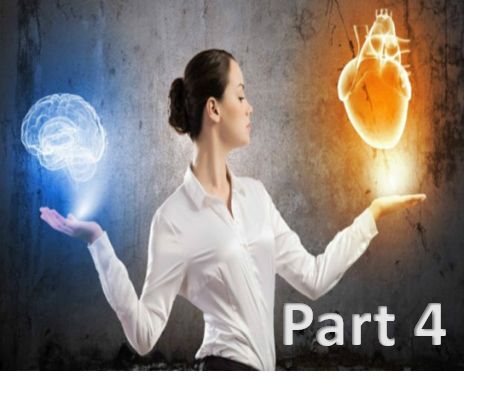The skill of EMOTIONAL REASONING is about using the information in feelings (from oneself and others) when decision-making.
The core emotional intelligence competencies (in yellow) of the model below help us consistently demonstrate the productive being states on the right side (in white) of the model, as opposed to the unproductive being states on the left side (grey) of the model that we can all be at times.

Emotional reasoning is about using the information in feelings (from oneself and others) when decision-making. It involves considering your own and others’ feelings when making decisions, combining the information in feelings with facts and technical information, and communicating this decision-making process to others. Feelings and emotions contain important information. For example, the level of commitment colleagues demonstrate often provides insight into whether a decision is going to be supported; the emotional appeal of products and services often provides insight into selling and marketing messages. When this type of emotional information is combined with facts and technical information, people make expansive, creative and well-thought-out decisions. Conversely, people who do not use emotional information and focus on facts or technical information only tend to be limited in their decision-making.
WHY IS EMOTIONAL REASONING SO IMPORTANT?
Feelings and emotions contain important information. For example, if a colleague is demonstrating frustration or stress, these feelings provide valuable insight that they are going to be less open and supportive of new ideas and information; • The workplace is becoming more complex and fast-paced. This requires responsive and good decision-making when all the facts and technical data are not available. Gut-feeling and intuition are important in these environments; and • People are influenced by emotion. If you fail to consider how people are likely to feel and react to decisions, you may not achieve buy-in or support for your decisions.
Explore our programs and assessments in emotional intelligence.



